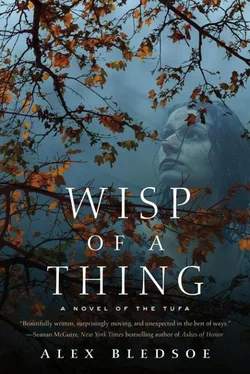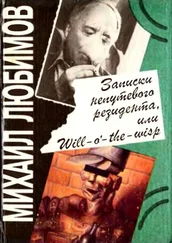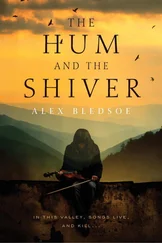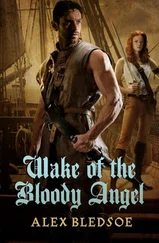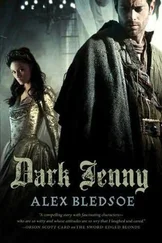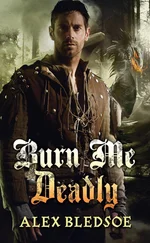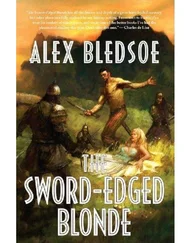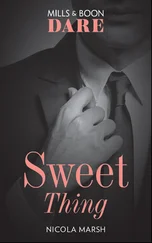“Yes, but she’s not Euridice,” Bliss said. “The best you can hope for is Persephone.”
“Yeah,” Rob said. Rationally, he knew he should walk away, that he was liable to learn that Deliverance was in fact a documentary if he entered the cave. But rationality had nothing to do with his presence here. “Are you taking my car back, then?”
“I don’t need a car,” she said. “Just be careful, don’t eat or drink anything, and get out as soon as she says she’s not leaving.”
“You’re so sure that’s what she’ll say.”
“As sure as I am of the sunrise. It’s not her fault; it’s just the way things work.”
“Even if I sing the song?”
“Won’t matter. Rockhouse isn’t here.”
He laughed coldly. “Right. Okay, then.”
He started toward the entrance, then looked back. Bliss was already gone. Reflexively he looked up, but the sky was clear and empty.
Steps carved into the stone led down toward the light and music. Beer cans, broken glass pipes, and crushed Styrofoam cups littered the way, growing thicker as Rob descended. He gingerly stepped over a discarded condom.
The path narrowed to a tunnel that turned just ahead. A thick electrical cable was attached to the stone wall near the passage’s roof, and a series of copper pipes ran along the ceiling. He stopped and listened. It sounded like at least two dozen people talking, laughing, and singing. Guitars, mandolins, and banjos rang out, completely lacking the sense of fun and skill he’d heard at the barn dance. These people had no interest in harmonizing, in weaving any sort of musical spell. They just played for themselves, even if they all played the same tune.
Heat surged up, making him sweat like he was in a sauna. Worse, the smell was awful: body odor, burning chemicals, and human waste. He wasn’t sure he could stand it without gagging.
He looked back and up at the entrance. The blue sky outlined the skeletons, especially the one he suspected was human. The bones swayed in the faint wind and clacked softly together.
His belly knotted with tension, but the sleep deprivation also gave him a sort of bravado. He stood up straight, flexed his fingers around the guitar case handle, and entered the cavern.
It was a great upside-down bowl, the center thirty feet high. A pinpoint of daylight was visible at the top of the dome, which was good since it let the smoke from the fires escape. He counted three: one at the center of a group of men, the other two small ones that heated water for a row of tubes and pipes set up on a series of tables. He realized with a start they were brewing methamphetamine down here, as well as making moonshine. The very air was probably filled with poisonous fumes. So much for rustic backwoods charm.
Then he noticed the people. They had the same black hair as all the Tufa, as he himself did, but that was where the similarity ended. Clad in ratty overalls and well-worn clothes from the last century, they milled about muttering and laughing. He saw wide-flared jeans, tube tops decorated with peace signs, and even grunge-style tattered flannel. Everyone looked sullen, and as Bliss had predicted, no one glanced his way.
More than their clothes were distorted, he realized. There was something indefinable but definitely wrong in their physical appearance, a contradictory spindliness and softness that gave the impression of insects rather than people. They didn’t move; they scuttled, or crept, or just sat still like spiders waiting for prey to cross their path.
Around the central fire clustered the musicians, their instruments battered from misuse and lack of care. It was the photo negative of what he’d seen and experienced at the barn dance, and it both disgusted and frightened him.
He walked slowly, stepping around rocks and bodies he hoped were only passed out. He kept his face neutral, but looked around for Stoney Hicks and Stella Kizer. Stoney, at least, was a good head taller than anyone else in the cave, so he’d be easy to spot.
He reached the circle of musicians. He waited until they finished an atrocious version of “Companions Draw Nigh,” then said, “Hi. Mind if I sit in?”
Only one of them looked up at him. He had a beard down to the middle of his chest, and only two visible teeth, one in each jaw. “If your ass’ll fit on the box,” he said. His eyes were all iris, and the skin around them was a creased, dried-parchment map of his hard life.
Rob sat on the indicated apple crate, opened his case, and took out his guitar. By the time he got it situated, the banjo player had begun a too-fast version of “Little Omie Wise,” and the others jumped right in. It took Rob several bars to catch up.
The banjo player began to sing in a voice so pure and high, it made Rob think of a castrato:
I’ll tell you a story of little Omie Wise,
How she became deluded by John Lewis’ lies.
He told her to meet him down by Adams’s Springs;
Some money he would bring, and some other fine things.
Rob knew the song, but now he felt the words with an intensity he never expected. He found it hard to breathe and his eyes began to water, not from the mishmash of fumes but from tears that happened so fast, he didn’t notice them until they dripped onto his hands. He wiped them furiously and choked down the guilt, despair, and hopelessness that swelled inside him.
He looked around the cave again. People milled about in groups now, still unconcerned about or unaware of his presence. Bliss was certain Stella Kizer was here, but where? In one of the side caves, some blocked with curtains? Were these like the little rent-by-the-hour bungalows behind the Beehive Truck Stop on Highway 69 in Kansas?
As if on cue, one of these curtains was pulled back and Stoney Hicks emerged. He was naked to the waist, and his jeans were unclasped. He looked like a black-haired, black-eyed barbarian god, every muscle chiseled and defined. His skin gleamed with sweat, and his hair was tangled, but that did little to dim his glory.
He turned his back to the room and urinated on the cave wall, then hitched up his pants and joined one of the groups. He sipped from the mason jar they passed around.
A moment later, Stella Kizer stepped from behind the same curtain. She wore only a ragged blanket tied under her arms. If she felt self-conscious, it didn’t show: she had eyes only for Stoney. She stood demurely behind him, waiting for him to acknowledge her presence. Her face was drawn tight, and her hair also a tangled mess. The sophisticated spitfire he’d met at the Catamount Corner was totally gone.
He took a deep breath to shake off the despair and started to stand up. But then the music hit him again:
He hugged her, he kissed her, he turned her around
He threw her in deep water, where he knew she would drown
He jumped on his pony, and away he did ride
The screams of little Omie went down by his side.
Rob shuddered as the emotions in him seized up, choking the physical breath from his body. Everything he thought he’d gotten past resurfaced, filling him with more despair than he’d ever experienced. What the fuck was happening?
Through hot tears he saw Stoney turn to Stella and painfully pinch her ass through the blanket. She did not cry out, but she clutched the fabric to keep it from falling away.
The singer crooned,
Two boys went a-fishin’ one fine summer day,
They saw little Omie go floating away.
Rob stopped playing, hunched over his guitar, and began to sob. No one noticed or tried to console him. The music continued:
They sent for John Lewis, John Lewis came by,
When confronted with her body, he broke down and cried.
Читать дальше
